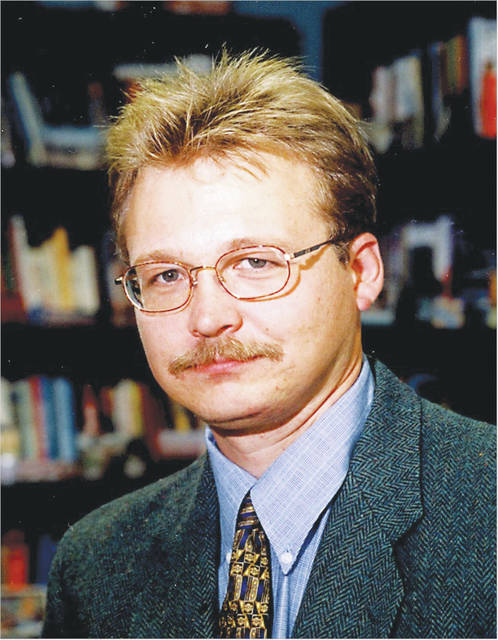
Right now, Vladimir Putin is looking at the world with a big smile on his face knowing he holds the keys to foreign policy.
Community members gathered Friday for the first lecture of Great Decisions 2018, which was presented by Sean Kay. He discussed Russia’s foreign policy and its relationship with the United States, with many audience members cautious about the relationship.
Kay is a professor in the Department of Politics and Government at Ohio Wesleyan University where he specializes in international politics, international security, international organizations, and U.S. foreign and defense policy. He also is the chair of OWU’s International Studies Program and an associate at the Mershon Center for International Security Studies at The Ohio State University.
“I’ve been looking at Russia as an academic and the policy world for a good period of time,” Kay said. “I would tell you, however, I’m not an internal Russia expert.”
Kay presented general trends, what happened after the Cold War, what’s going on with Putin, and, lastly, what does this mean for the United States.
There are many general trends of Russian foreign policy that scholars have found when examining Russia. These include a strong domestic link, centralized decision making without checks and balances, a deep fear of insecurity, and a deep fear of being surrounded by enemies.
“Over the years, we’ve done a really good job of telling Russia what their foreign policy ought to be, and a really bad job of understanding what it actually was,” Kay said. “We tend to look at Russia through our embedded western values.”
Russia is very skilled at creating a strong negotiating hand out of deep weakness, said Kay. It has capabilities to project a very good show of forces.
Kay also said that not one cabinet within President Donald Trump’s administration has focused on the cyber attack on the United States in the 2016 elections. Trump also hasn’t criticized Putin.
“It’s scary. That’s the part, the fearsomeness,” said attendee Danielle Clark. “I went to Russia in [1977], and that was frightening because I had to ask permission for a lot of things.”
Kay also went into detail about the North Atlantic Treaty Organization (NATO).
“I was surprised about the items said regarding NATO expansion in the 1990s,” attendee Joe Penzera said.
As of now, many of the NATO alliance countries have pro-Putin governments, including Turkey and Bulgaria.
“There are three things that changed Putin’s views,” Kay said. “Regime change by the United States, overthrowing other governments, and Hillary Clinton deeply (criticizing_ Putin’s election. (Putin) saw interference in the sovereignty of Russia. The other thing that got him was NATO enlargement.”
Great Decisions 2018 is Delaware’s free community discussion series on current U.S. foreign policy. It runs every Friday at noon through March 23 at the William Street United Methodist Church, at 28 W. William St.


